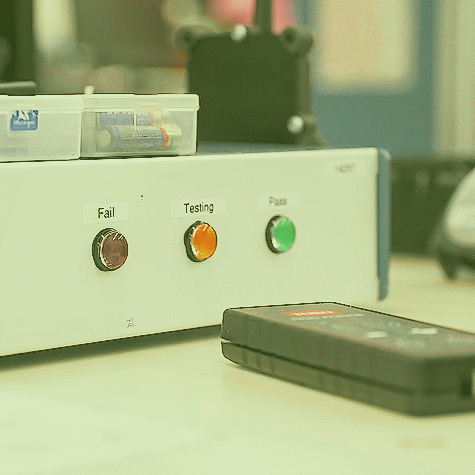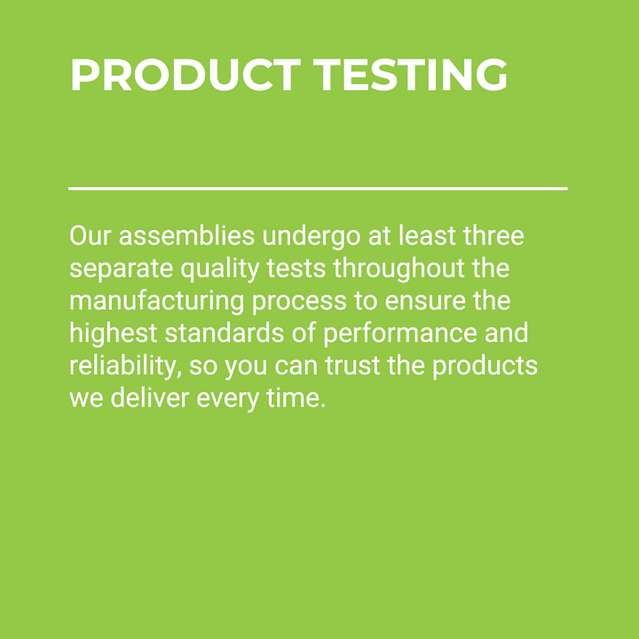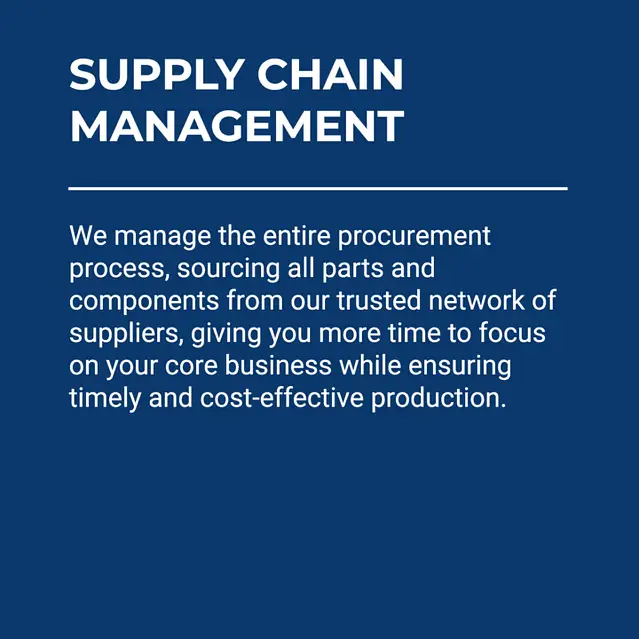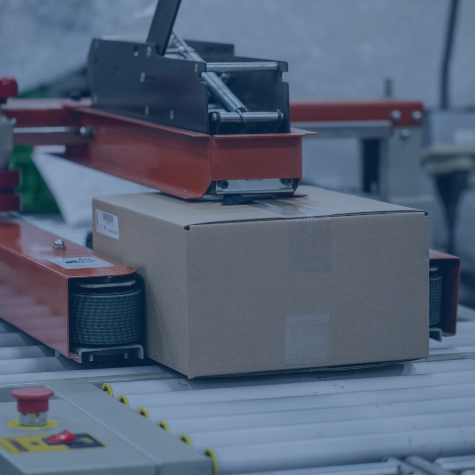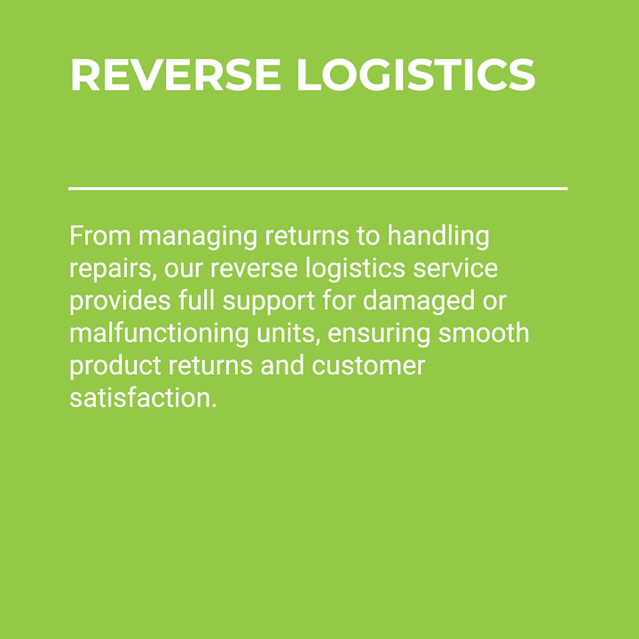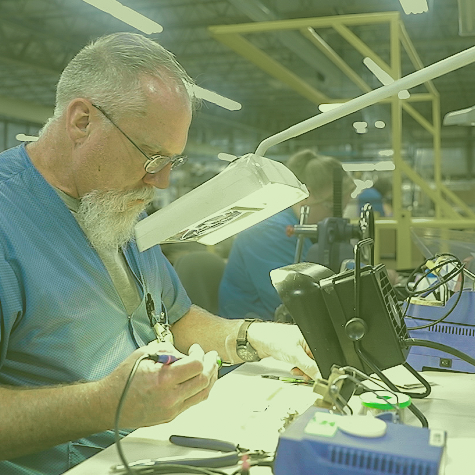Understanding Electrostatic Discharge and Its Impact
Did you know that a tiny spark you can’t see could ruin a whole electronic assembly? In the fast-paced world of electronics manufacturing, electrostatic discharge (ESD) is an invisible threat that can cause catastrophic damage.
ESD occurs when static electricity transfers between objects. This can happen, for example, when a person touches an electronic device. The sudden burst of electricity poses a significant risk to many electronics, especially printed circuit boards (PCBs). During assembly, the components on PCBs are exposed to the environment.
ESD events can cause immediate failures or hidden product defects, leading to higher scrap rates or customer complaints. They can also permanently harm electronic products and impact functionality and longevity. But what does an ESD event look like?
Let’s say a technician in a PCB assembly line accidentally touches a sensitive component without proper grounding. Right before they touch the assembly, a sudden electric discharge damages the microprocessor on the board. The damage isn’t immediately visible, and the technician leaves the assembly on the line.
However, the microprocessor fails during product testing, leading to costly repairs and production delays. Or, worse, the product fails when the customer receives it, and they leave negative reviews online about the company.
As you can guess, keeping ESD under control is a high priority for original equipment manufacturers (OEMs) because of the potential for such costly failures. When outsourcing manufacturing operations, OEMs want to be able to rely upon electronic manufacturing service providers to manage ESD diligently. At RiverSide Integrated Solutions (RIS), we have stringent quality control procedures to mitigate the risk of ESD-related issues.
These measures include proper handling, storage and testing of electronic components to ensure protection from ESD events throughout manufacturing.
ESD Prevention at RIS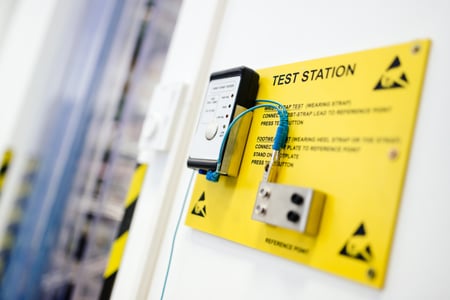
At RIS, we take extensive steps to safeguard our electronic assemblies from potential ESD damage. Our comprehensive ESD prevention program is integral to our quality management strategy.
Our goal is to meet the highest standards of ESD prevention. This ensures the quality of the assemblies we provide to our customers. Our program encompasses various elements, including employee training, ESD-safe workstations, protective equipment and regular audits. We designed each of these precautions to ensure the level of quality that our customers have come to expect.
1. Employee Training
All RIS employees get ESD safety training. They learn about static electricity, safe component handling, the impact of ESD on assemblies and our prevention measures. This training is for all employees, even if they don’t work directly with assemblies. It helps our teams understand the importance of preventing ESD events and aims to minimize the risk of static discharges during manufacturing.
Plus, because we train every employee on proper ESD practices, everyone is responsible for reporting potential hazards they see. This gives our employees buy-in to the quality management process and helps us maintain higher quality standards.
 2. Workstations and Environments
2. Workstations and Environments
We ensure that our electronics production floors are ESD-safe. We use ESD-safe materials and infrastructure in our facilities to accomplish this. Our electronics production floors are fully climate-controlled, helping us ensure optimal humidity and temperatures.
Low humidity increases static buildup, while higher humidity helps dissipate static charges. Higher humidity allows moisture in the air to conduct electricity. Further, the stable temperature helps to avoid any unexpected static generation. At RIS, we keep the humidity and temperature stable and within optimal ranges year-round.
We also utilize ESD-safe floor coverings and mats made from conductive materials. The material, plus the significant surface resistance, helps dissipate and ground static away from sensitive electronic assemblies.
Even our workstations are grounded. We use ESD wrist straps and cords to protect sensitive assemblies and components.
3. Protective Equipment
However, it isn’t just our workstations that are ESD-protected. Anyone who enters our production floors must also wear protective gear. This gear includes ESD smocks and specialty shoes or shoe coverings when entering production areas.
Like the floor coverings, these items are made from conductive materials. This allows static to dissipate safely without needing to ground through the nearest conductive surface (like the electronic assemblies). Because smocks cover the majority of the wearer’s body, they reduce the static buildup from movement. The material of the fabric allows static to discharge slowly and safely.
ESD shoe covers include a strap that sits directly against the wearer’s skin. This gives static a direct path to the ground before it can do any damage. ESD shoes are designed to do the same.
These precautions reduce the potential for static discharges, but we ensure this with our ESD test stations. Testers ensure that employees wear their gear correctly and are properly grounded. We have posted these testers at the entrances of our ESD-safe production zones.
4. Regular Audits
Our comprehensive approach to quality management includes regular audits utilizing processes like Gemba walks, 5S audits and employee feedback.
Gemba walks are informal inspections where reviewers observe daily work as it unfolds. They help us identify issues that might not appear in formal processes. On the other hand, 5S audits follow a targeted checklist to ensure we’re checking critical areas every time.
Both of these audits enable us to effectively identify areas for improvement and promptly address any hazards before they become problematic. We take a proactive approach to maintaining high quality in our electronic assemblies. This helps protect our customers’ products from ESD-related issues.
Commitment to Quality
Protection against ESD hazards is essential to RIS’s quality management program. We are committed to quality assurance and focus on preventing ESD events in our operations. At RIS, we prioritize the crucial role of ESD prevention in ensuring the highest quality electronic products.
We utilize these protective measures to ensure the assemblies we produce meet high standards of excellence. Our comprehensive approach underscores our unwavering commitment to excellence and customer satisfaction.
Looking for a comprehensive contract manufacturer for your electronic or PCB assembly? Contact us to learn about our ESD prevention practices and how we can meet your manufacturing requirements.
About RiverSide Integrated Solutions:
RIS is an advanced contract manufacturer providing robust solutions in circuit board assembly and product assembly. We employ more than 350 people and provide services to OEMs worldwide. We operate two state-of-the-art manufacturing facilities within the US.
With all of the choices in contract manufacturers out there, we know it can be challenging to find someone who understands your business model and has your best intentions in mind. RIS has always proven to be a win-win-focused relationship.
As your one-stop shop, we have the capabilities, capacity, quality assurance standards and resources to support all of your manufacturing needs. We understand that supply chain management is complex and very time-consuming, so we urge our customers to utilize us in the fullest capacity.
Our total-package solutions include:
- Dedicated Program Team
- Extensive supply-chain network for efficient parts procurement and kitting
- Subassembly and full box-build
- Warehousing and drop-shipping capabilities
- Reverse logistics
- Flexible order fulfillment
- Scalability to meet your needs
Contact us today at (507) 523-3220 to see how we can help with your manufacturing project, or click contact us for a quote.





